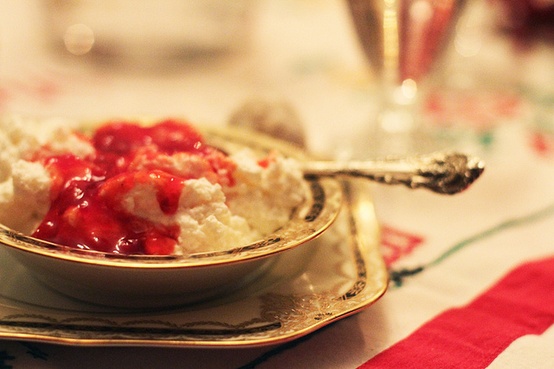
I’m a huge lover of traditions, of all shapes and sizes. I read church liturgy and thumb through books on the lives of saints with interest. I am inspired by stories of friends celebrating the solstices and equinox days, marking the changing seasons. I eagerly learn about Buddhist prayer flags, and how Jews celebrate the Sabbath, and how Hindu’s mark Diwali.
Traditions are meaningful to us because they are heavy with significance, weighted down with beautiful and profound symbolism. How you mark your sacred and special days tells me about you, your values, your desires, your story. Whether it’s the centuries-old traditions of baptism and funerals, or the years-old family traditions of birthday mornings fitted snugly between mum and dad in bed, presents across your lap. They tell the stories of our lives, and as they change and grow to fit who we are, they tell the story of who we’re becoming.
And so one of the biggest joys of marrying someone from another culture, is the wealth of new traditions that I get to be a part of. Not an outsider, but part of the family. They become my traditions now too, this second Christmas we’ve spent together in Denmark.
This year I was not a beginner. I knew about the evening of making konfekt together, rolling out marzipan and dipping chocolate and chopping nuts. I knew about the evening gathered around the table to make decorations for the table and mantelpiece, choosing the greenest branches and the best baubles to lie around the candles. I knew about the order for the Julefrokost and why not to fill up too quickly on the smoked salmon and marinated herring – fish and shrimp coming first, then the meat and sausage, finally the cheese course. I knew about giving out presents, one at a time, watching them all being opened, drinking coffee to keep us awake into the wee hours of Juleaften, Christmas Eve. I knew about walking around the Christmas tree singing carols, and the melodies were familiar to me instead of strange.
And so I loved it and I felt part of it, and I felt the significance of these traditions that I was included in, felt the weight of their meaning, speaking of love and abundance and gratitude.
And at some point something inside me had a mini rebellion. Because the caramelised potatoes were attempting a good stand-in, but I missed roast potatoes and parsnips. I missed opening stockings with my sister and knowing for certain that they would include a) a toothbrush, b) socks and c) a chocolate orange. I missed the midnight communion service at our little church, lit only with candles, friends and neighbours exchanging the peace as the clock strikes midnight. I missed the afternoon walk across the fields and through woods before dinner time. I missed the mad scramble as everyone opened presents at once.
It’s not that my British traditions are better, they’re just what I’ve know longest. Those Danish caramelised potatoes are in fact pretty fantastic, and I loved most the moment when we all stopped talking and sat quietly as my father-in-law read aloud the Christmas story to us.
Traditions become a part of who we are, what we value, how we express what’s important. It’s right and normal that those traditions change over time – some get dropped completely because they no longer fit; others morph into something different, something more meaningful. That process is both an exciting joyful one, and a hard one. And when you’re married to someone from a different culture, those changes can be magnified.
Next year, assuming we continue our current pattern, we’ll be spending Christmas in the UK. I can guarantee now, there will be aspects of the Danish Christmas tradition I miss. This is how cross-cultural marriage works – it’s a gradual and beautiful melding of values, practices and approaches. One day, we’ll host Christmas in our own home, and that year will be the moment all this comes together, as we plan a Christmas that reflects who we are, him and me, a partnership, a family.
Until then, I’ll enjoy the roast potatoes and the caramelised potatoes, recognise every twang of wistfulness without fearing it, and celebrate the abundance that is given me through my cross-cultural marriage.
///
Photo: Risalamande, the traditional Danish Christmas dessert, by Sarah Goldschadt, via Pinterest



